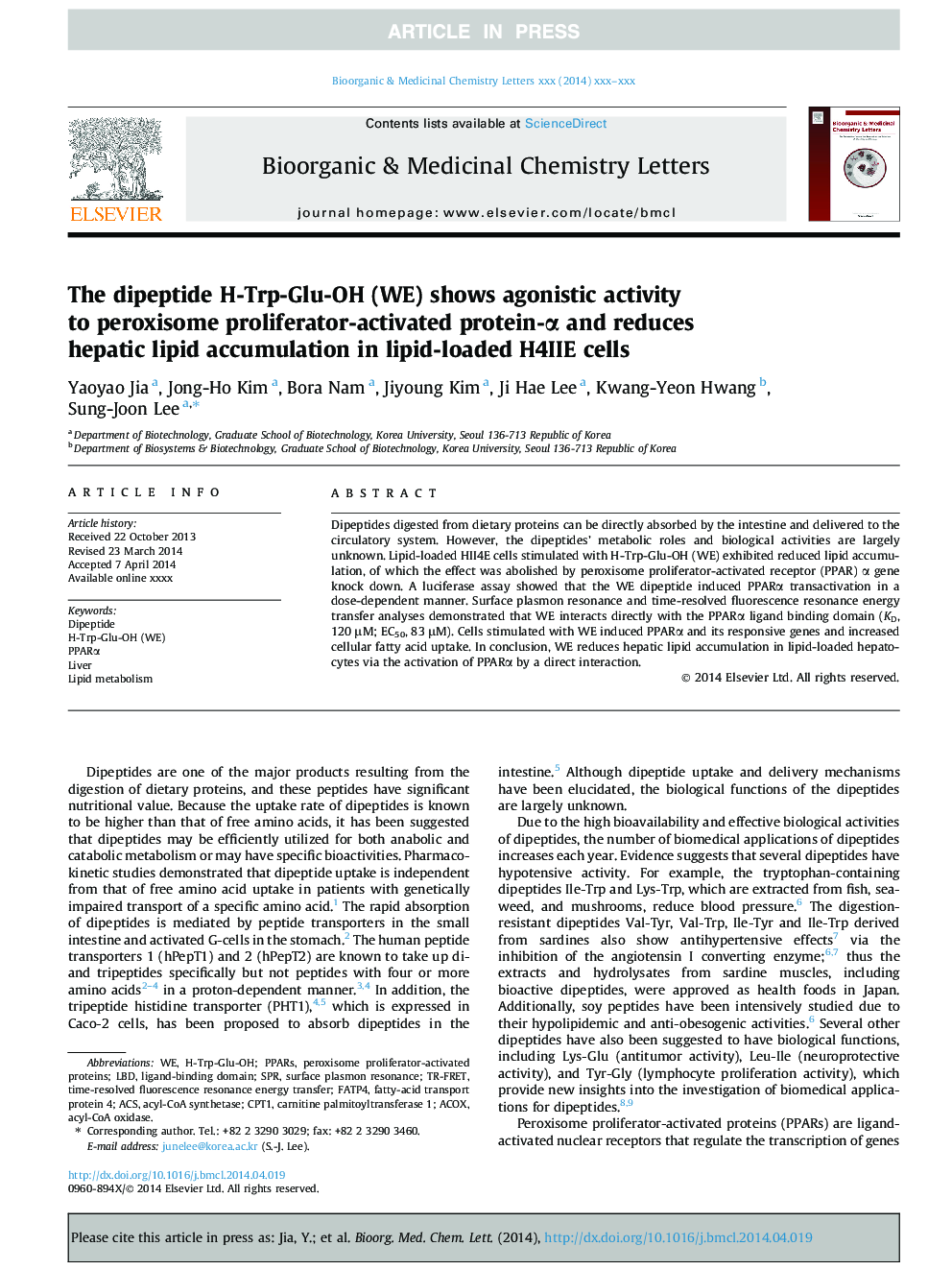| Article ID | Journal | Published Year | Pages | File Type |
|---|---|---|---|---|
| 10591875 | Bioorganic & Medicinal Chemistry Letters | 2014 | 6 Pages |
Abstract
Dipeptides digested from dietary proteins can be directly absorbed by the intestine and delivered to the circulatory system. However, the dipeptides' metabolic roles and biological activities are largely unknown. Lipid-loaded HII4E cells stimulated with H-Trp-Glu-OH (WE) exhibited reduced lipid accumulation, of which the effect was abolished by peroxisome proliferator-activated receptor (PPAR) α gene knock down. A luciferase assay showed that the WE dipeptide induced PPARα transactivation in a dose-dependent manner. Surface plasmon resonance and time-resolved fluorescence resonance energy transfer analyses demonstrated that WE interacts directly with the PPARα ligand binding domain (KD, 120 μM; EC50, 83 μM). Cells stimulated with WE induced PPARα and its responsive genes and increased cellular fatty acid uptake. In conclusion, WE reduces hepatic lipid accumulation in lipid-loaded hepatocytes via the activation of PPARα by a direct interaction.
Keywords
Related Topics
Physical Sciences and Engineering
Chemistry
Organic Chemistry
Authors
Yaoyao Jia, Jong-Ho Kim, Bora Nam, Jiyoung Kim, Ji Hae Lee, Kwang-Yeon Hwang, Sung-Joon Lee,
